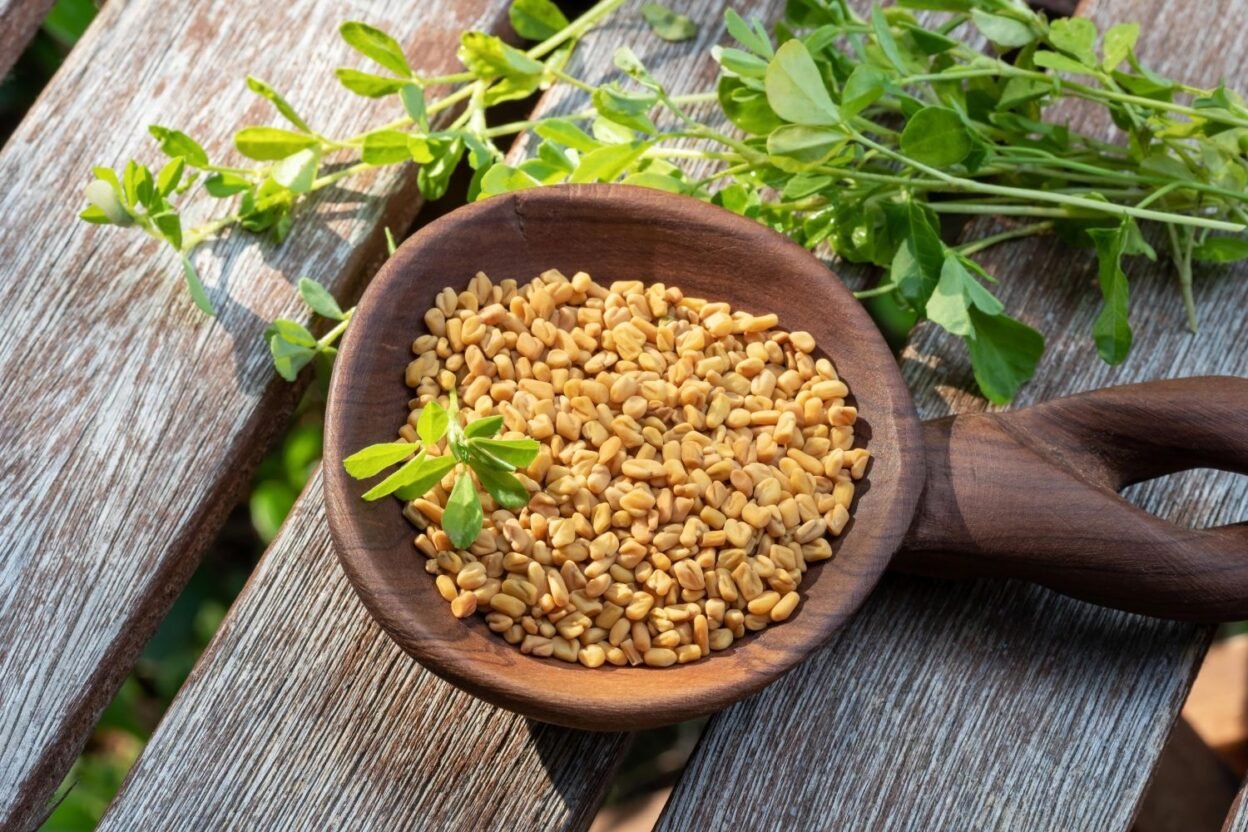Fenugreek is an herbaceous plant used across many cultures for medicinal and culinary purposes.
Its use dates back thousands of years and was known to ancient civilizations such as the Egyptians and Greeks.
Both the seeds and leaves of fenugreek are used in cooking and traditional medicine, and it is considered a common dietary supplement in many cultures.
Historical and Traditional Uses:
Fenugreek has been used in traditional medicine for centuries.
In traditional Indian medicine (Ayurveda), it is used to treat digestive problems, strengthen hair, and improve overall health. It is also used to enhance kidney function and boost physical strength.
Nutritional Components:
Fenugreek seeds contain a variety of essential nutrients.
They are rich in fiber and proteins and contain vitamins like Vitamin B6 and Vitamin C, along with minerals such as iron and magnesium. They also contain active plant compounds like diosgenin, believed to contribute to many of fenugreek’s health benefits.
Health Benefits:
- Improved Digestion:
Fenugreek is beneficial for digestive health and is used to treat issues like bloating and constipation.
- Blood Sugar Regulation:
Some studies have shown that fenugreek may help regulate blood sugar levels, making it useful for people with diabetes.
- Heart Health Support:
Fenugreek may help lower bad cholesterol levels, thereby reducing the risk of heart disease.
- Increased Milk Production:
Traditionally, fenugreek is used to enhance milk production in breastfeeding women.
- Anti-inflammatory Properties:
Fenugreek contains anti-inflammatory properties that can help reduce pain and swelling, especially in conditions like arthritis.
Skin Health Improvement:
Thanks to its antibacterial and anti-inflammatory properties, fenugreek can be used to reduce skin inflammation and treat acne.
Weight Loss Aid:
The fiber content in fenugreek helps promote a feeling of fullness, which may reduce food intake and support weight loss.
Hair Health Support:
Fenugreek is believed to help prevent hair loss and promote hair growth.
Menstrual Pain Relief:
Fenugreek may help alleviate menstrual pain and related symptoms.
Culinary Uses:
Fenugreek is used in many traditional dishes, particularly in Indian cuisine.
Fenugreek seeds are used as a spice in various dishes, while the leaves are used as a leafy vegetable in salads and cooked meals.
The seeds can also be used to make fenugreek tea, which is consumed for general health benefits.
How to Use Fenugreek:
Fenugreek Seeds:
Soak seeds in water overnight and drink the water in the morning, or grind the seeds and add them to food.
Fenugreek Powder:
Can be added to smoothies, yogurt, or soups.
Fenugreek Tea:
Boil one teaspoon of fenugreek seeds in a cup of water for 5–10 minutes and strain.
Fenugreek Oil:
Can be applied topically to the skin or scalp to improve skin and hair health.
Dosage Guidelines:
The ideal dosage depends on the intended purpose:
For General Health Support:
1–2 grams of fenugreek seeds daily is recommended.
For Digestion or Blood Sugar Regulation:
Typical dosage ranges from 5–10 grams per day.
For Skin Treatment:
Fenugreek oil can be applied directly to the skin as needed.
Drug Interactions:
Fenugreek may interact with some medications, including:
Diabetes Medications:
Because fenugreek can lower blood sugar levels, it may enhance the effects of diabetes medications and cause hypoglycemia.
Blood Thinners:
Fenugreek may increase bleeding risk when used with anticoagulants like warfarin.
Hormonal Treatments:
Fenugreek may interfere with hormonal therapies, including birth control and hormone replacement therapy.
Nutritional Value per 100 grams of Fenugreek Seeds:
| Nutrient | Amount |
|---|---|
| Calories | 323 kcal |
| Protein | 23 g |
| Fat | 6 g |
| – Saturated Fat | 1.5 g |
| Carbohydrates | 58 g |
| – Dietary Fiber | 25 g |
| – Sugars | 0 g |
| Calcium | 176 mg |
| Iron | 33.53 mg |
| Magnesium | 191 mg |
| Phosphorus | 296 mg |
| Potassium | 770 mg |
| Sodium | 67 mg |
| Zinc | 2.5 mg |
| Vitamin C | 3 mg |
| Thiamin (B1) | 0.322 mg |
| Riboflavin (B2) | 0.366 mg |
| Niacin (B3) | 6.31 mg |
| Vitamin B6 | 0.6 mg |
| Folate (B9) | 57 µg |
Safety Precautions:
Although fenugreek is generally safe when used in moderation, there are a few precautions to keep in mind:
Allergies:
People allergic to peanuts or chickpeas should avoid fenugreek.
Pregnancy and Breastfeeding:
While fenugreek is used to enhance milk production, pregnant women should consult a doctor before using it to avoid any potential effects on pregnancy.
Digestive Issues:
Fenugreek may cause side effects such as bloating and gas in some individuals.
Medication Interactions:
Consult a doctor before using fenugreek if you’re taking medications regularly.
Conclusion:
Fenugreek is a versatile plant with numerous health benefits. Whether used in cooking or as part of a wellness routine, fenugreek offers many advantages that support overall health.
With its long history in traditional medicine and rich nutritional content, fenugreek remains one of the most valuable medicinal plants in the world.
By following recommended dosages and being mindful of drug interactions and safety precautions, fenugreek can be a valuable addition to your diet and wellness plan




